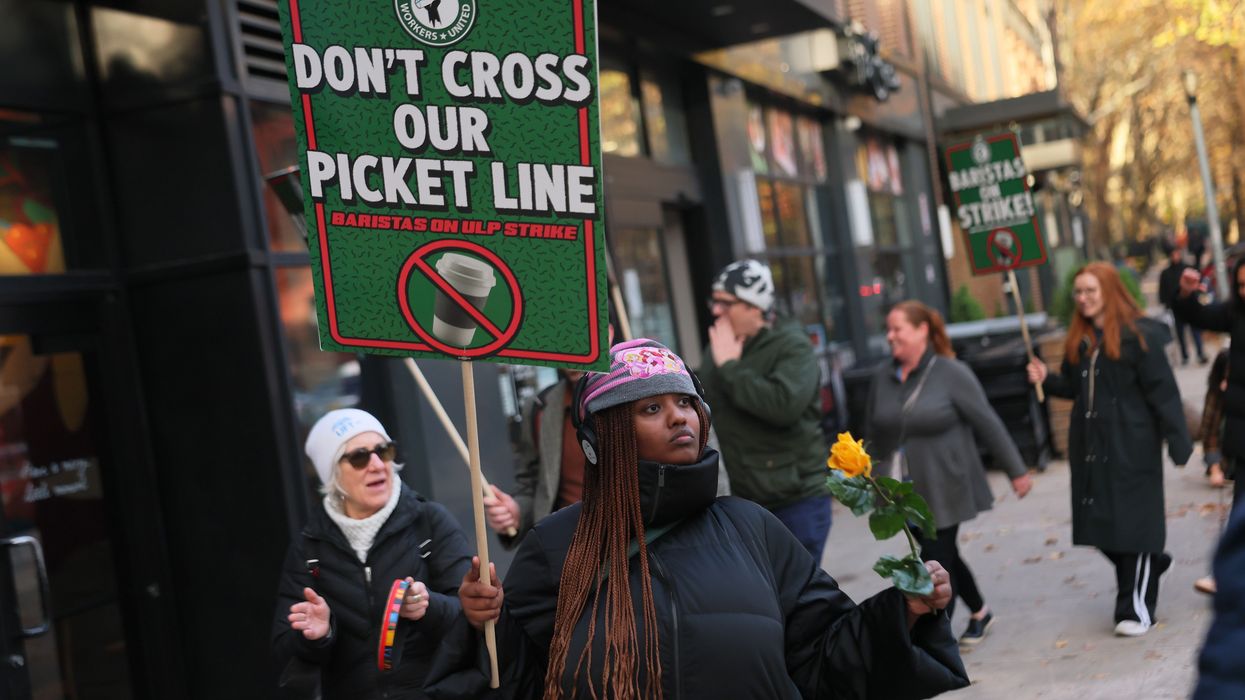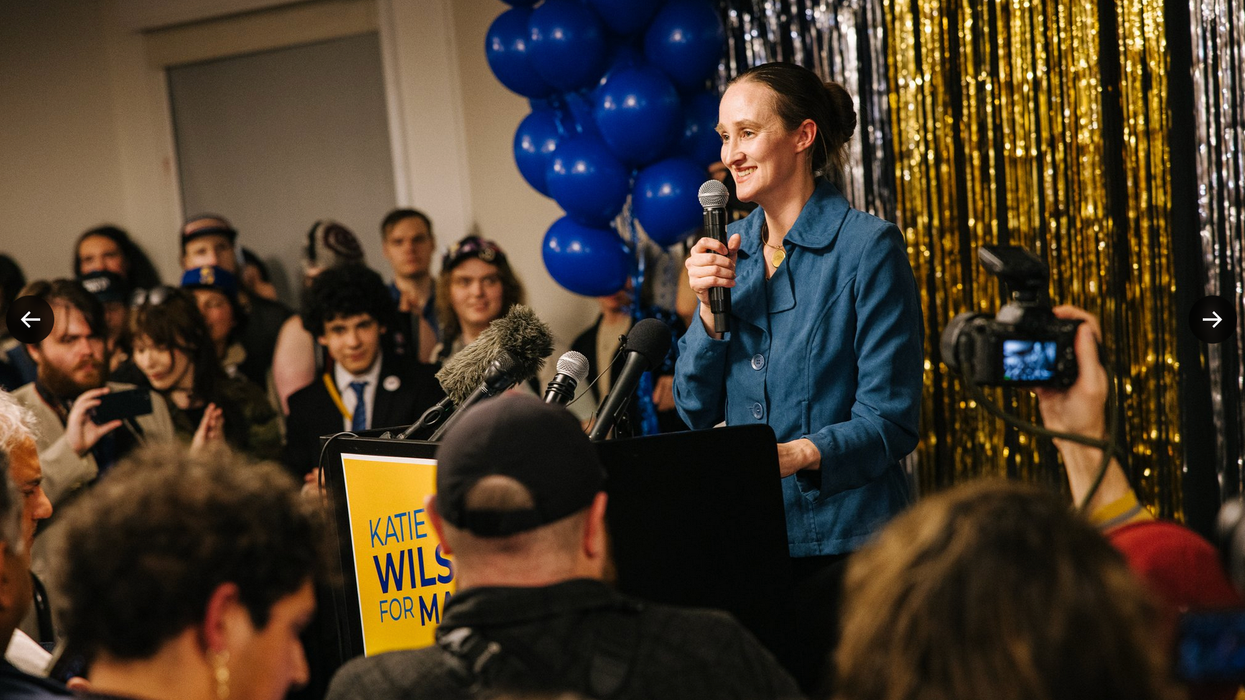"This victory is just the latest sign that Americans are fed up with overpaid CEOs—and want to use tax policies to crack down on the problem," Sarah Anderson, Inequality.org co-editor and global economy project director at the Institute for Policy Studies, told Common Dreams.
For Seattle housing advocates, the victory was a long time coming. While much of the country struggles with an affordable housing crisis, Seattle's housing costs are around 50% higher than the national average, playing a large role in making it the most expensive U.S. city outside of California, according to a 2024 analysis. Twenty-three percent of Seattle renters spend over half their income on housing, and Washington state has the third-highest homeless population in the U.S., trailing only California and New York. More than half of the state's homeless population—or over 16,000 people—spend their time in Seattle's King County.
There is also a very real sense in the city that Big Tech businesses in particular are directly to blame for the high costs, as rents in the Seattle metro area rose by 17% from 2011 to 2015, as Amazon and other tech giants developed the formerly industrial South Lake Union area into an office park. One local columnist even labeled the phenomenon the "Amazon effect."
House Our Neighbors, a group of housing activists that first came together in 2021 to defeat stricter sweeps of homeless encampments, has been working on a solution for years, according to In These Times. The solution they came up with was a model of social housing pioneered in places like Vienna and Singapore that is "removed from the profit motive, available to all, permanently affordable, and held as a public good in perpetuity."
"Last night's results left no doubt that Seattle voters want our city to act quickly to create permanently affordable social housing for people living on a range of incomes—and we believe that our wealthiest corporations should help pay for it."
First, they succeeded in passing a voter referendum in 2023 creating a new affordable housing agency, the Seattle Social Housing Developer.
To fund the agency, the coalition then gathered more than enough signatures to put the excess compensation tax, first dubbed Initiative 137, on the ballot for the high-turnout November 2024 presidential election. However, the Seattle City Council voted to delay the vote until a lower-turnout February special election. Then, following lobbying from the Seattle Metropolitan Chamber of Commerce and other business interests, the council introduced a competing measure that would fund the social housing agency using an existing JumpStart payroll expense tax that was already earmarked for existing affordable housing and Green New Deal programs.
"The City Council would rather take money from low-income programs than from millionaires and billionaires," House Our Neighbors policy and advocacy director Tiffani McCoy told local publicationThe Stranger at the time.
The competing measures were put on the ballot as Proposition 1A (for the excess compensation tax) and 1B (for the council alternative.) The latter option was promoted heavily by Seattle Mayor Bruce Harrell. Since January 1, its campaign received more than twice as much money as the 1A campaign, with tech giants Amazon and Microsoft each contributing $100,000, as local outlet Real Change reported.
"The Proposition 1A campaign had huge odds placed in front of it," Washington State Rep. Shaun Scott (D-43), whose district includes parts of Seattle, told Common Dreams. "It was a… low-turnout February special election in which some of the wealthiest corporations in human history spent gobs of money to defeat it. Many of the political proxies of those corporations… also opposed 1A."
"And yet," he continued, "it won. It won because of working people. It won because it's good for working people."
While many ballots are still to be counted, 1A is currently leading 1B by a 15-point margin, according to The Urbanist.
"Despite a half-million dollars in corporate spending and the unscrupulous tactics of our City Council and mayor, last night Seattle voters delivered an unambiguous message: Now is the time for Seattle to take bold, innovative action to meet our housing and homelessness crises," McCoy said in a statement.
"Last night's results left no doubt that Seattle voters want our city to act quickly to create permanently affordable social housing for people living on a range of incomes—and we believe that our wealthiest corporations should help pay for it," McCoy continued. "This is now the second time that Seattle has told its elected leaders, loud and clear, that we want social housing!"
Shemona Moreno, the executive director of 350 Seattle—which helped with the get-out-the-vote effort—told Common Dreams: "Last night Seattle showed that not only do we want social housing but that we reject the austerity policies of this City Council, mayor, and their corporate backers. A huge thank you to the hundreds of volunteers that made this happen and to House Our Neighbors' leadership. Seattlites deserve safe, affordable places to call home. Social housing is good for our planet and for our communities."
The victory could make a big difference for housing in Seattle itself, though social housing advocates believe the fight is not over.
"Despite this clear mandate, we fully expect a legal challenge from the corporate interests who sought to defeat this measure," McCoy said. "Because let's be clear, their opposition was never about any of the issues they raised—it was about making sure the wealthiest among us don't pay a dollar more in taxes to solve the housing crisis. With two citywide council seats and a mayoral election coming up, we hope our city's elected leaders will listen to their constituents and embrace the work to come."
Beyond the city limits, however, state and national advocates also say it has the potential to inspire change across the country.
"I wouldn't be surprised if we see this spread to 'red' communities as well as officials see such taxes used effectively to raise revenue for social programs—revenue that will be even more needed in the face of federal cutbacks."
Scott has introduced a state bill to increase spending on low-income housing and support for the homeless by closing a corporate tax loophole that favors large banks.
"The city of Seattle has shown us the way," Scott said, adding that he wants Washington state to be able to support Seattle and other cities that may follow its model. The win for Proposition1A may increase support for his bill from other legislators.
"I think it's a clear signal to state lawmakers that this is something that we can win on that's popular," he said.
And the signal doesn't have to stop at the borders of Washington state.
"Seattle can play a very important role for leading the way for what it looks like to address housing unaffordability through progressive revenue," Scott said.
Further south, California Assemblymember Alex Lee (D-24) recently introduced A.B. 11, The Social Housing Act.
"It's inspiring to see the grassroots support for social housing in Seattle," Lee told Common Dreams. "Voters see the value in embracing social housing as a public good, and Proposition 1A is a major step toward bringing this successful housing model to the city. As we've seen in Vienna and Singapore, social housing can actualize housing as a human right. That's why I will continue to push for social housing in California, so that housing can be attainable for everyone."
Anderson agreed the Seattle win could have national implications, especially when it comes to holding corporations who overpay executives to account. She noted that Seattle's excess compensation tax follows measures in San Francisco and Portland, Oregon to penalize companies with large gaps between CEO and worker pay.
And while these efforts may have begun on the progressive West Coast, there is a voting bloc for similar polices to succeed in other parts of the country.
"I wouldn't be surprised if we see this spread to 'red' communities as well as officials see such taxes used effectively to raise revenue for social programs—revenue that will be even more needed in the face of federal cutbacks," Anderson told Common Dreams. "And polling shows that taxing companies that overpay their executives is very popular—across the political spectrum. One 2024 survey, for instance, asked voters their views on a tax hike on corporations that pay their CEO at least 50 times more than they pay their median employee. Large majorities in every political group supported the idea (89% of Democrats, 77% of Independents, and 71% of Republicans)."
On the national level, there are three bills set to be reintroduced this session that seek to address excessive compensation: the Curtailing Executive Overcompensation (CEO) Act, the Tax Excessive CEO Pay Act, and the CEO Accountability and Responsibility Act.
"Once these policies start spreading at the state and local levels, they will give a boost to similar bills that have been introduced at the federal level," Anderson said.


